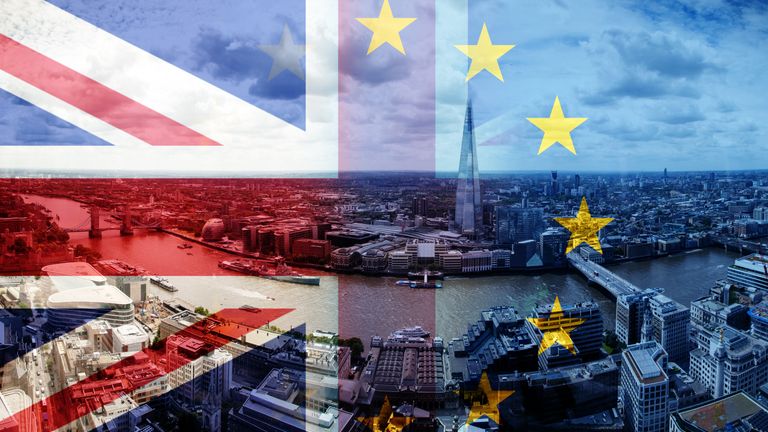Why UK is being 'cagey' about Brexit divorce bill
Sky's Robert Nisbet says there's a reason the Government is being so cautious - any talk of a figure carries huge political risk.
Wednesday 29 November 2017 13:30, UK
It appears it was a message sent out to dozens of EU diplomats that set the Brexit hares racing.
They were told that UK and EU negotiators were edging towards a divorce bill deal which could require a meeting on Friday.
The British Government is being far more cagey - a source telling Sky News: "There is no agreement on what the financial settlement looks like."
There's a reason they are being so cautious - any talk of a figure carries huge political risk.
That's because the numbers being bandied about suggest a major capitulation by the Government, which had initially offered a total payout of £20bn.
A Brexit sub-committee - including prominent Leavers Boris Johnson and Michael Gove - last week backed the Prime Minister's insistence that they needed to offer more.
But some of the figures being bandied about by unnamed EU officials suggest gross liabilities of near €90bn (£79bn).
Most papers are speculating that would be cut to an actual settlement of £40-50bn after tax, and spread out over years.
But that will still alarm some, like former cabinet minister Priti Patel, who thinks Brussels negotiators should be told to "sod off".
So Number 10 is trying to steer clear of a definitive number for obvious political reasons.
The EU team seems happy to help by suggesting the formula - by which we pay for projects and pensions agreed as part of the EU budgeting process - is settled over decades rather than in one eye-watering cheque.
The benefits of edging towards a deal are obvious.
The UK Government wants to push these talks past phase one (which comprises the divorce bill, EU citizens' rights and the Irish border) onto phase two: our future trading relationship with the EU.
The EU will only agree to that if the 27 members decide at an EU summit on 15 December whether "sufficient progress" on the separation issues has been made.
Theresa May will hope to lay the groundwork over lunch with the Commission President Jean-Claude Juncker on Monday.
Clearly with this gradual shift in how the bill is calculated, and both sides in "touching distance" of a deal on citizens' rights, this leaves the Irish border as a sticking point.
The Irish government - mired in its own domestic political turmoil - could veto any attempt to move to trade talks if the UK doesn't commit to ruling out a hard border.
The problem is if Northern Ireland leaves the customs union, how could checks enforce the movement of goods between the two countries?
So there is no doubt progress is being made by the technocrats poring over the details of our liabilities.
But the Irish issue - not the divorce bill - could be the one to scupper London's efforts to move these talks out of the quagmire.








